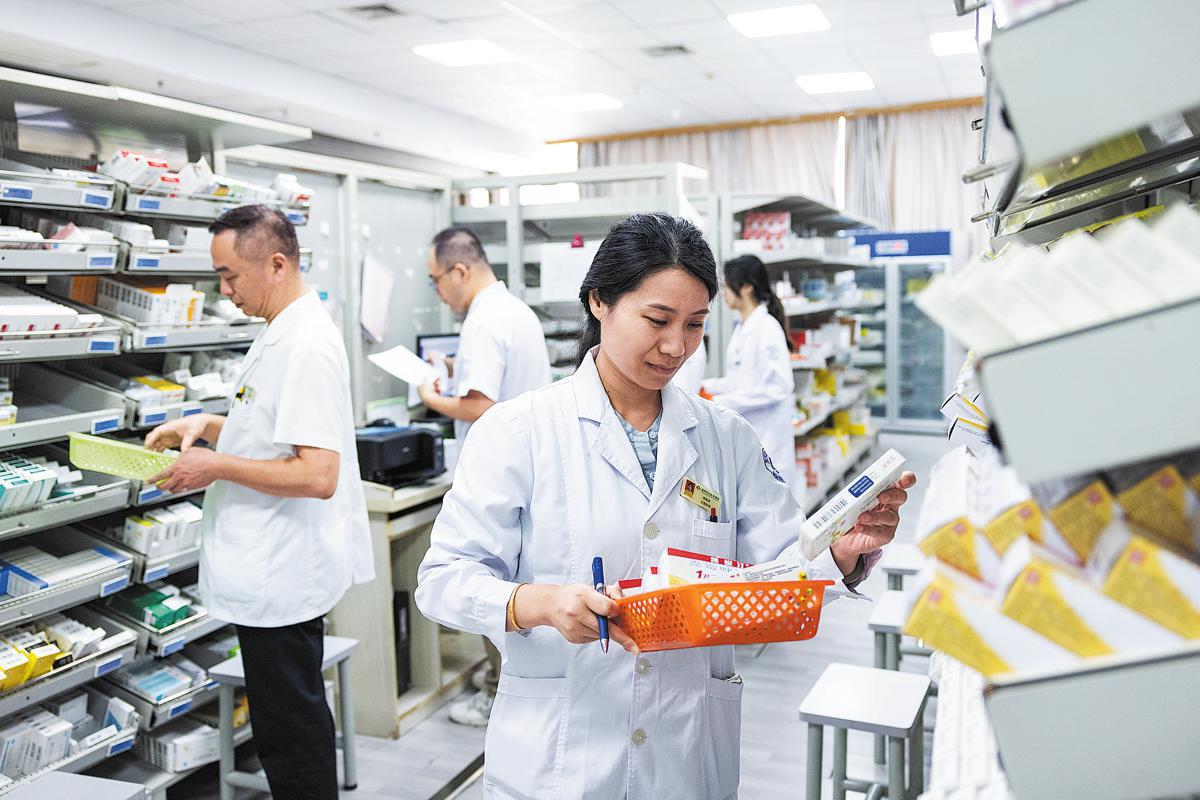
Pharmacists dispense drugs at a hospital in Huzhou, Zhejiang province, in August. YI FAN/FOR CHINA DAILY
In an effort to safeguard fair market competition and protect consumer interests, the State Council's anti-monopoly commission officially issued new anti-monopoly guidelines on Friday targeting the pharmaceutical sector.
A key highlight of the guidelines lies in the involvement of online platforms' monopolistic regulations. Given the rapid growth of online medical consultations and pharmaceutical e-commerce, the guidelines, for the first time, incorporate measures to address monopolistic practices in online medicine businesses, prohibiting platforms from engaging in the misuse of data, algorithms or platform rules.
The broad scope of the new guidelines also merits attention, which encompasses the entire pharmaceutical product chain — including traditional Chinese medicine, chemical drugs and biological products — compared to the previous version, which was largely concentrated in the limited realm of chemical active pharmaceutical ingredients (APIs).
"The pharmaceutical industry is highly technology-driven. Besides APIs, it also includes innovative drugs, patented medicines and generics. Every stage — from procurement and R&D to production, distribution and generic development — involves significant technological advancements and related protective strategies," said Zhou Wei, deputy director of the health law research center at Wuhan University, in an earlier interview.
To further combat "false innovation", the guidelines also address a new type of patent monopoly behavior known as "product hopping".
Product hopping refers to a strategy employed by original drug manufacturers to avoid or reduce competition from generic drugs, which mostly occurs shortly before the expiration of a patented drug and the entry of its generic counterpart and if applied inappropriately, could constitute an abuse of market dominance.
Factors for evaluation include whether the new patented drug represents a non-substantial improvement and whether the transition hinders or delays the entry of generics into the market, according to the guidelines.
"This is not about restricting the development of patented drugs but about regulating false innovation that fails to significantly improve a drug's efficacy, safety or utility," Zhou said.
Comprising seven chapters and 55 articles, the guidelines aim to provide detailed interpretations of monopolistic practices, enforcement principles and criteria for determining violations, offering a comprehensive framework to tackle anti-competitive behaviors in the pharmaceutical industry.